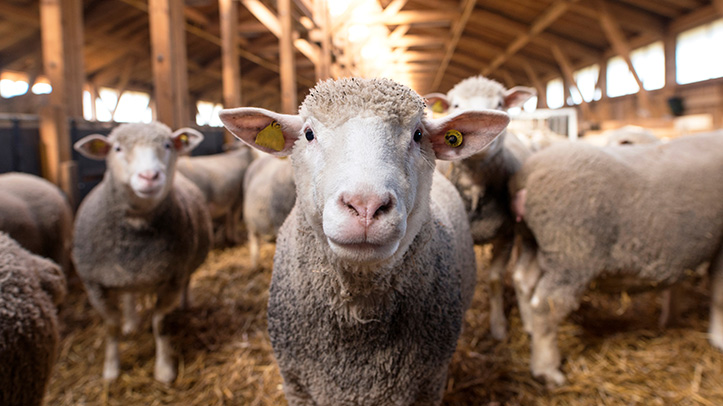RSPCA is celebrating the successes of the last year in improving farm animal welfare, but has called for further progress to be made on the vital Kept Animals Bill.
The last year has seen a series of announcements and consultations which will have a positive impact on the welfare of farm animals across the UK. This comes at a pivotal time when the public is becoming ever more aware about the origins of their food and the welfare of the animals involved.
Conscious consumers are increasingly applying an ethical lens to what they put in their shopping baskets and their mouths. This, the RSPCA believes, provides an opportunity to improve farm animal welfare and make a huge difference to over one billion animals which are raised for food in the UK each year.
Dr Marc Cooper, head of farm animals at the RSPCA, said: “RSPCA is celebrating some of the positive developments for farm animal welfare that have taken place over the last year.
“From new subsidy payments for farmers delivering higher welfare standards, to progress on method of production labelling, a reduction in animals slaughtered without pre-stunning, and even more businesses taking proactive steps to show their commitment to farm animal welfare in the produce they sell, it’s been a year which has seen some substantive progress for millions of farm animals.
“Of course, there’s still a lot of progress that needs to be made and improvements we want to see, but we’ve seen some noteworthy developments that will impact the lives of billions of animals.”
Announcement of farm subsidy payments in England
This year the UK Government announced it would offer payments to farmers who farmed to higher welfare standards in England. This means, for example, English farmers will be financially rewarded for moving away from hens in cages and pigs in farrowing crates and stopping the practice of docking pigs’ tails among other welfare concerns.
Agriculture Bill in Wales launched too and could lead to subsidies for higher welfare
In Wales, the Agriculture (Wales) Bill has also been published – and paves the way for a new scheme which looks set to incentivise Wales’ farmers for delivering the highest standards.
A new payments system pledges to “recognise and reward high animal welfare standards which take into account the animal’s physical welfare as well as their wellbeing”; with incentives to hinge on animals having “opportunities for positive experiences which allow them to have a ‘good life’ rather than simply removing factors that have a negative impact on them”.
The Agriculture Bill is also set to ban the use of snares and glue traps in Wales.
Further consultation announced to bring in ‘method of production’ labelling
The UK Government launched a consultation into ‘method of production’ labelling last year and this year released the results, as well as announcing a further consultation in 2023. This means that plans to bring in mandatory labelling for all animal products is progressing.
Currently only eggs are labelled but the RSPCA wants to see this expanded and hope that this will encourage a shift towards rearing more animals to higher welfare standards, improving the lives of millions of animals. Public awareness of how the animals have lived and their welfare at slaughter could create demand for higher welfare products.
Food Standards Agency figures show a reduction in animals slaughtered without pre-stunning
This year the FSA released its figures on the number of animals slaughtered without pre-stunning. The FSA figures showed a significant reduction in the number of animals slaughtered without pre-stunning from an estimated 94 million in 2018 to 25.4 million in 2022. Stunning ensures animals are unconscious at the time of slaughter, so they cannot feel pain or suffer. For slaughter to be humane, it’s essential that animals are effectively stunned so it was positive to see more animals being pre-stunned.


